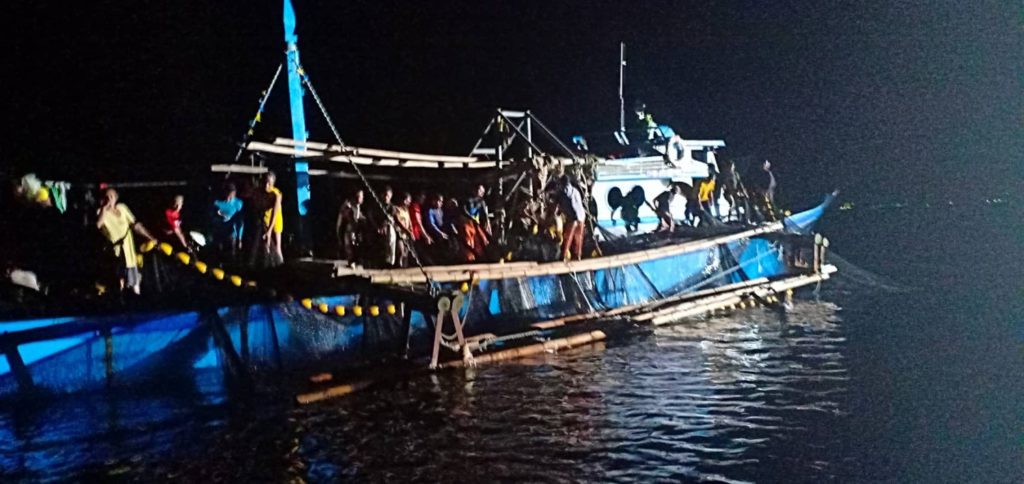
Twenty-one fishermen are arrested for illegal fishing in the waters of Dauis, Bohol on the evening of Nov. 28, 2019. (PHOTO COURTESY OF PCG-BOHOL)
CEBU CITY, Philippines — Oceana urged various stakeholders to join public consultation on the proposed Fishery Administrative Order (FAO) to track all commercial fishing boats amid rampant illegal fishing activities in municipal waters and protested areas.
These include the local government units, artisanal fishers organizations, the national telecommunications office, the protected area management boards and civil society organizations in the Visayas region.
The Bureau of Fisheries and Resources (BFAR) is set to hold a public consultation on Friday, November 8, 2019 in Cebu City, according to an emailed news release from Oceana.
The consultation will discuss the proposed Fishery Administrative Order (FAO) entitled, “Rules and Regulations on the Implementation of Vessel Monitoring Measure (VMM) and Electronic Reporting System for Commercial Philippine Flagged Fishing Vessels Amending FAO 260 Series of 2018 to Include in the Coverage thereof all Catcher Vessels in Philippine Vessels.
Lawyer Gloria Estenzo Ramos, vice president of Oceana, welcomed the resumption of public discussions that would enable government to monitor behavior of all commercial fishing vessels in the country.
“All commercial fishing vessels must be traced by government at any time of the day or night, as required by law, to ensure that they operate only on areas they are allowed to fish,” Ramos said.
The proposed administrative order requires all fishing vessels to install a tracking device which is operational at all times so that the government can detect their location, speed and historical tracks at any given time.
Under the old FAO 260, BFAR requires only those that are 30 Gross Tonnage and above to install a tracking device.
“Many commercial fishing boats enter municipal waters and marine protected areas with impunity because they know they cannot be detected easily,” Ramos pointed out.
Oceana is an international advocacy organization dedicated to protecting the world’s oceans.
Oceana has been working closely with national and local government agencies, and stakeholders to restore the abundance of Philippine fisheries and marine resources since 2014./elb